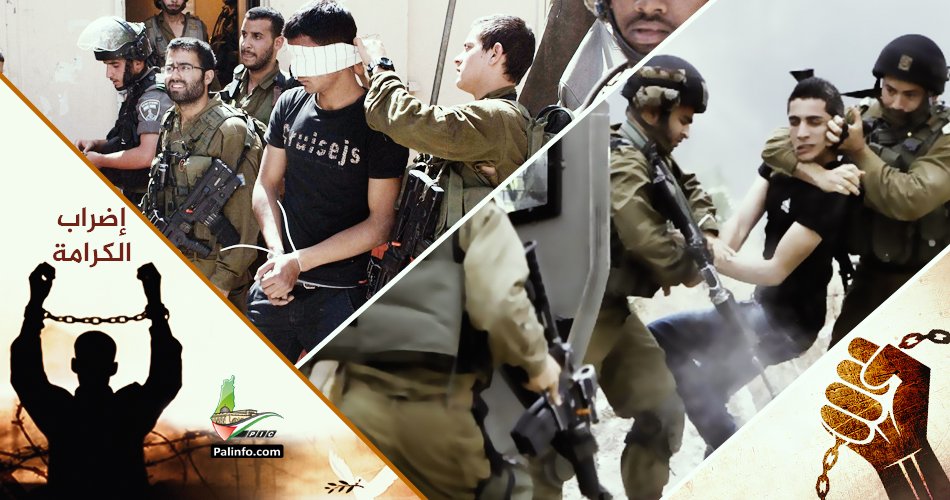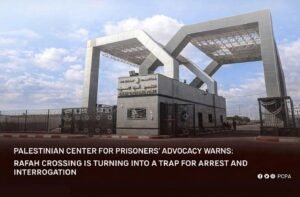Prisoners are Protected Persons under International Humanitarian Law
A prisoner is considered a protected person under international humanitarian law, which regulates the conduct of parties in armed conflicts and guarantees the rights of individuals not directly participating in hostilities, including prisoners of war and civilian detainees.
This legal protection is based on the four Geneva Conventions of 1949, the two Additional Protocols of 1977, in addition to a number of relevant international covenants and resolutions.
Given the reality of Palestinian prisoners in Israeli occupation prisons, studying their legal status and rights under international standards is essential to expose the violations they are subjected to and to activate mechanisms of international accountability against the occupying authorities.
I. Definition of a Prisoner in International Law
According to Article (4) of the Third Geneva Convention of 1949, a prisoner of war is defined as any person:
“belonging to the armed forces of a party to the conflict and who falls into the hands of the opposing party, whether a regular combatant, member of a militia, or a volunteer corps, provided that such forces display distinguishing signs and respect the laws of war.”
Civilian prisoners are also recognized under the Fourth Geneva Convention, which regulates the protection of civilian populations during times of war and includes:
- Civilians arrested in occupied territories.
- Civilians held for security reasons without a fair trial.
Therefore, Palestinian prisoners—whether fighters, political activists, students, women, or children—have a clear legal status that obliges their protection and the respect of their rights.
II. Fundamental Rights of Prisoners under the Geneva Conventions
The Geneva Conventions, particularly the Third Convention, provide prisoners with a set of essential rights, including:
- Right to humane treatment (Article 13):
Prisoners must be treated humanely at all times, without physical or psychological torture or degrading treatment. - Right to protection from torture, threats, and discrimination (Articles 13–17):
The conventions prohibit any form of coercion during interrogation, or using prisoners as leverage, and forbid discrimination based on race, religion, or political opinion. - Right to food and medical care (Article 15):
Prisoners have the right to sufficient and healthy food, proper medical services, including examinations, treatment, and hospital transfers when necessary. - Right to contact the outside world (Articles 70 & 71 of the Fourth Convention):
Including the right to exchange messages with family, and to receive visits—particularly from representatives of the International Committee of the Red Cross. - Right to legal representation and fair trial (Article 84):
Prisoners may only be tried before courts that provide full judicial guarantees, including the right to appeal and challenge rulings. - Right to protection from collective punishment or forcible transfer (Article 49 of the Fourth Convention):
The law prohibits transferring prisoners from occupied territory to the territory of the occupying power or subjecting them to collective punishment.
III. The First Additional Protocol (1977) – Expanding Legal Protections
The First Additional Protocol to the Geneva Conventions enhanced the legal protection of prisoners in international armed conflicts, particularly by:
- Recognizing fighters in national liberation movements as protected persons under the status of “prisoner of war” (Article 1, paragraph 4).
- Expanding the obligations of occupying powers toward detainees, including transparency and humane treatment.
This text holds special significance in the Palestinian context, as it affirms the right of Palestinians to resist armed occupation and grants their fighters the status of “prisoner” upon detention.
IV. Israel’s Flagrant Violation of International Standards
Despite the clarity of legal protections, the Israeli occupation authorities persist in violating international humanitarian law through:
- Refusal to recognize Palestinian prisoners as legitimate combatants.
- Denial of their legal status as prisoners of war.
- Use of torture, solitary confinement, denial of visits, and legal representation.
- Administrative detention without charges or trial.
- Transfer of prisoners from occupied territories to prisons inside Israel—an explicit violation of Article 76 of the Fourth Geneva Convention.
The International Committee of the Red Cross and the United Nations Human Rights Council have repeatedly called for an end to these violations, without any response from the occupation authorities.
V. Responsibility of the International Community and the Role of International Criminal Law
The Rome Statute of the International Criminal Court (1998) states:
“Abuse of prisoners, denial of a fair trial, or torture constitute war crimes” (Article 8).
Therefore, the policies practiced by Israel against Palestinian prisoners constitute defined war crimes that require:
- Opening serious international investigations.
- Activating international criminal justice mechanisms, including referrals to the International Criminal Court.
- Holding Israeli officials accountable for these crimes in both their official and personal capacities.
Recommendations of the Palestinian Center for Prisoners Advocacy
Based on the legal standards found in the Geneva Conventions and international humanitarian law, the Palestinian Center for Prisoners Advocacy affirms:
- Palestinian prisoners are legally protected persons and must be treated as prisoners of war or civilian detainees under international law.
- Violations of their rights constitute international crimes that require accountability and legal prosecution.
- International organizations—foremost among them the United Nations and the Red Cross—must fulfill their roles in monitoring these violations and intervening urgently to stop them.
- We call on the international community to act immediately to end the occupation’s crimes against prisoners and to ensure their unconditional release.





